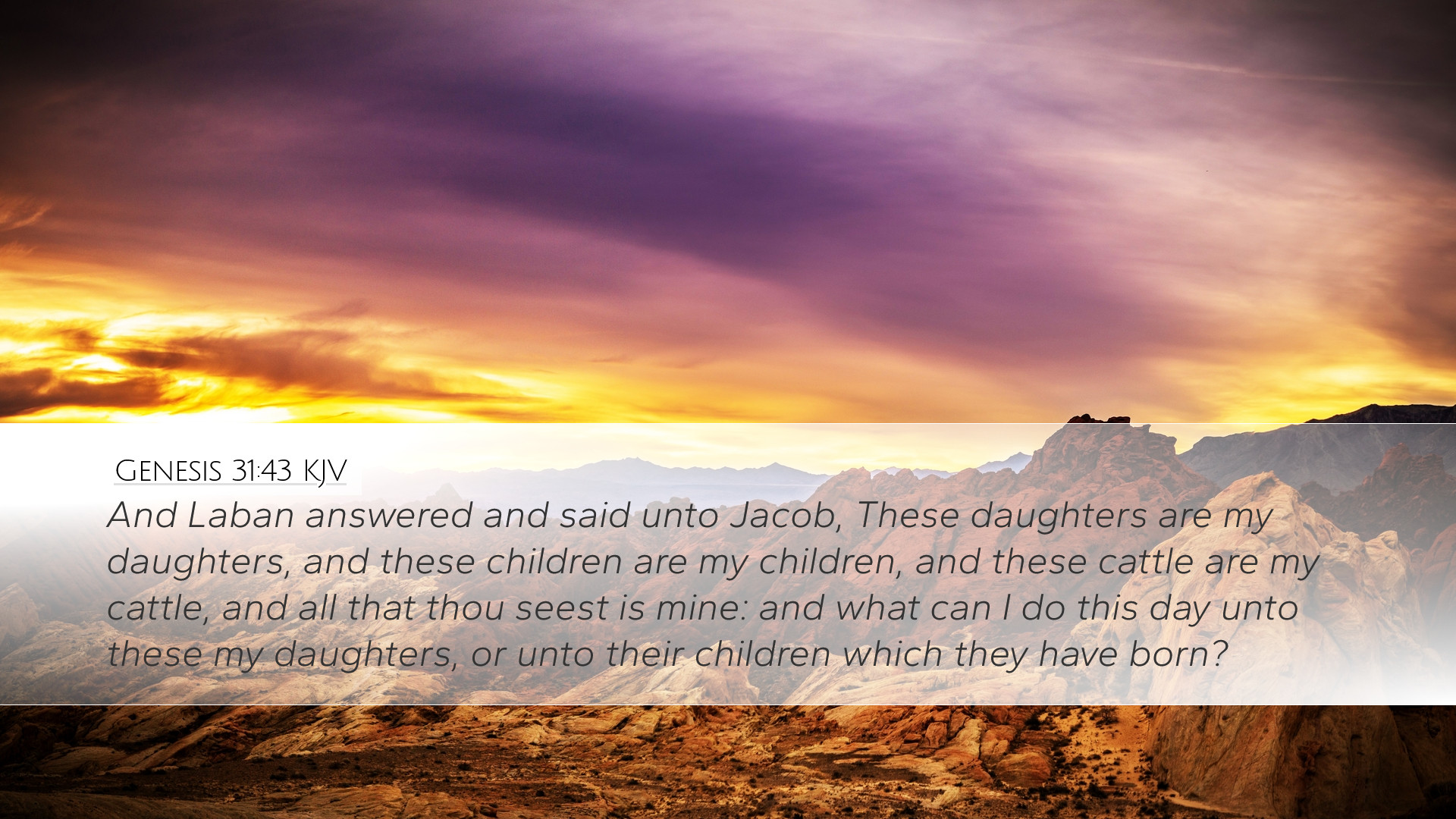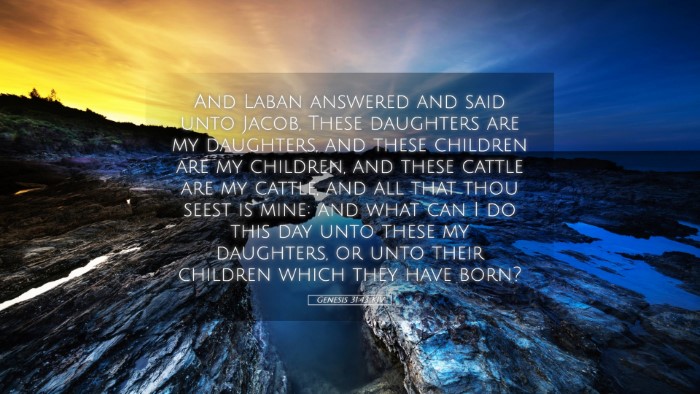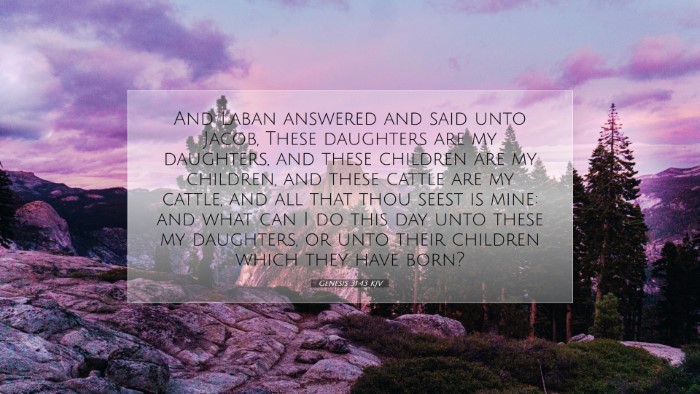Commentary on Genesis 31:43
Verse Context: Genesis 31:43 states: “And Laban answered and said unto Jacob, These daughters are my daughters, and these children are my children, and these cattle are my cattle, and all that thou seest is mine: and what can I do this day unto these my daughters, or unto their children which they have born?” This verse captures a critical moment in the narrative of Jacob’s departure from Laban after many years of service.
Overview of the Passage
This verse is situated within the larger context of Jacob’s negotiation with Laban and illustrates Laban's possessive attitude toward his family and possessions. It highlights themes of ownership, familial ties, and the tension that arises from perceived injustices in relationships.
Insights from Commentaries
Matthew Henry's Commentary
Matthew Henry provides a practical analysis of Laban’s words. He emphasizes that Laban shows a strong attachment to his daughters and grandchildren, reflecting a paternal instinct but simultaneously a sense of entitlement concerning his possessions. Henry notes the irony in Laban’s assertion, given that Jacob had worked tirelessly for the benefit of Laban’s estate. Laban’s focus on ownership reveals the often complex dynamics of family relationships, where love can interweave with selfishness, leading to conflicts.
Albert Barnes' Commentary
Albert Barnes highlights that Laban's understanding of his relationship with Jacob is marked by a misunderstanding of true ownership. He argues that while Laban considers his daughters and cattle as his, the truth of the matter is that Jacob’s labor has significantly enriched Laban's household. Barnes underlines Laban’s rhetorical question as a reflection of his desperation to maintain control and his denial of Jacob's rightful claim to his own family. This demonstrates a broader biblical principle about the nature of authority and stewardship—what is truly owned is not merely a matter of legal possession but also of moral right and righteousness.
Adam Clarke's Commentary
Adam Clarke delves deeper into the cultural aspects of this verse, explaining that family structures in the ancient Near East were complex and often fraught with competition for inheritance and honor. Clarke notes that Laban’s fierce assertion of ownership could indicate fear of losing influence over his family, which brings a significant emotional charge to his words. He elaborates that Laban’s lamentation reflects not only his attachment but a fear of the future—how his daughters and their children might fare without his protection and provisions.
Theological Reflections
This verse confronts readers with the profound question of what it means to belong and to be part of a family unit. Laban's declaration of possession serves as a reminder of the sometimes contentious nature of familial relationships, where loyalty is often tested by claims of ownership. Moreover, it invites a reflection on the biblical understanding of kinship, which goes beyond biological connection to include spiritual ties and responsibilities.
The Nature of Possession
- Material vs. Relational: The disparity between material possession and relational dynamics is crucial in this passage. Laban’s possessive language suggests a superficial understanding of family that equates worth with ownership, challenging readers to rethink their own definitions of value and connection.
- Divine Providence: The narrative arc of Jacob's journey signals the theological theme of divine providence at work, where God’s purposes transcend human designs. Jacob's relationship with Laban ultimately leads to his growth, maturity, and the fulfillment of God’s promises to him.
Personal Application for Theologians and Pastors
For pastors and theologians, this passage serves as a rich source for exploring topics such as family dynamics, ethical stewardship, and the nature of true ownership in the eyes of God. Laban’s assertion can prompt discussions about what it means to truly nurture relationships and how possessive attitudes may hinder this process. Furthermore, it raises questions regarding pastoral care: how do we nurture community while recognizing legitimate claims of individual identities within that community?
While interpreting this text, it is essential to consider the implications of Laban’s declaration in the context of modern-day family dynamics, thereby inviting contemporary readers to assess their own relationships and the possessions that may or may not bind them.
Conclusion
This verse encapsulates a pivotal moment in Jacob’s struggle for autonomy and identity amidst the bonds of family and possession. Engaging with Laban’s assertions provides a multi-faceted examination of relationships, challenging theological and pastoral leaders to navigate the complexities of family ties with grace and wisdom.


